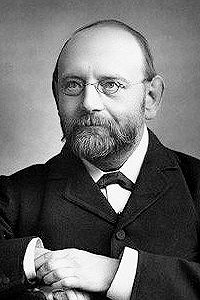Introduction

Born: August 12, 1838, York, England.
Died: January 28, 1896, London, England.
Buried: Norwood Cemetery, London, England.



Born: August 12, 1838, York, England.
Died: January 28, 1896, London, England.
Buried: Norwood Cemetery, London, England.


Barnby was a composer, conductor and (like his father Thomas) an organist. He entered the choir of York Minster at age seven, and was an organist and choirmaster at twelve.
In 1854 he went to London and entered the Royal Academy of Music, where he studied under Cipriani Potter and Charles Lucas. In 1856, he competed for the first Mendelssohn Scholarship.
When the examinations were over, of the nineteen applicants, he was tied for first place with Arthur Sullivan. After a second test, Sullivan won.
Barnby was organist at Mitcham, St. Michael’s, Queenhithe, and St. James’ the Less, Westminster, before he was appointed to St. Andrew’s, Wells Street, where he stayed 1863–71, establishing the musical reputation of the services.
From 1871–86 he was organist at St. Anne’s, Soho, where he instituted the annual performances of Bach’s Passion Music according to St. John, with orchestral accompaniment.
In 1867, Messrs. Novello, to whom he had been musical adviser since 1861, established Barnby’s Choir, which gave oratorio concerts
1869–72, when it was amalgamated with the choir formed and conducted by M. Gounod at the Royal Albert Hall, under the title of the Royal Albert Hall Choral Society (now the Royal Choral Society).
The same publishing firm also gave daily concerts in the Albert Hall, 1874–75, which Barnby orchestrated.
Barnby conducted the St. Matthew Passion in Westminster Abbey in 1871. He was appointed precentor of Eton in 1875, a post he kept until 1892, when he succeeded Thomas Weist-Hill as principal of the Guildhall School of Music.
In 1878, Barnby married Edith Mary Silverthorne.
Also that year, he helped found the London Musical Society, becoming its first director and conductor. Under his baton, the Society produced Dvorak’s Stabat Mater for the first time in England.
In 1884, Barnby conducted the first performance in England of Wagner’s Parsifal as a concert in the Albert Hall.
From 1886–68 he conducted rehearsals and concerts of the Royal Academy of Music, of which he was a fellow.
Barnby was knighted in 1892, and the same year conducted the Cardiff Festival. He conducted the festival again in 1895.
Barnby’s compositions include an oratorio (Rebekah, 1870), a psalm (The Lord Is King, Leeds Festival, 1893), an enormous number of services and anthems, part songs and vocal solo, trios, etc.
He also wrote a series of Eton Songs, 246 hymn tunes (published in one volume in 1897), and edited five hymnals, the most important of which was The Hymnary (1872).
Biography courtesy of Thomas and Mary Barnby Hedges.